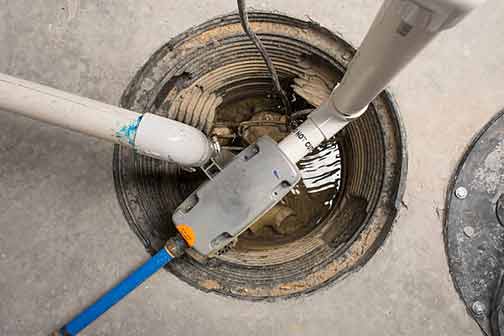
A residential flood control system is an essential infrastructure designed to protect homeowners from the devastating effects of floods. It is a comprehensive set of measures put in place to prevent water from entering residential properties during heavy rainfall, melting snow, or other sources of excessive water. These systems are designed to divert, contain, or mitigate the flow of water to minimize damages to the property and ensure the safety of its occupants.
Types of Residential Flood Control Systems
There are various types of residential flood control systems available, depending on the specific needs and geographical location of the property. Here are some common types:
Drainage Systems: These systems focus on managing water flow and preventing water buildup around the property. They typically include surface drains, French drain installation, catch basins, and downspout extensions to efficiently redirect water away from the home.
Sump Pump Systems: A sump pump is installed in the basement or lowest level of a property to remove water that has already infiltrated. They are designed to pump excess water out of the building to prevent basement flooding and structural damage.
Grading and Landscaping: Proper grading of the property ensures that water flows away from the structure, preventing water accumulation. Additionally, the strategic landscaping and use of features like rain gardens can naturally absorb and filter rainwater, further reducing flood risks.
Retaining Walls and Berms: These structures are built to hold back water and prevent it from reaching or pooling around the property. Retaining walls and berms are particularly useful in areas prone to soil erosion or when properties are situated on slopes or near water bodies.
Flood Barriers and Shields: Flood barriers come in various forms, including permanent concrete walls or temporary deployable barriers. They are typically placed around vulnerable areas, such as windows, doors, and low-lying entry points, to prevent water from entering the building.
Floodproofing Measures: Floodproofing involves modifying the property’s structure or installing specific features to make it more resistant to flood damage. This may include elevating the building, sealing walls and floors, using flood-resistant materials, and installing backflow prevention devices.

By effectively diverting or containing floodwater, these systems reduce the risk of costly damage to the structure, foundation, possessions, and electrical systems within the property.
Benefits of a Residential Flood Control System
Investing in a residential flood control system offers numerous benefits, including:
Minimized Property Damage: By effectively diverting or containing floodwater, these systems reduce the risk of costly damage to the structure, foundation, possessions, and electrical systems within the property.
Enhanced Safety: Flood control systems can prevent potential hazards caused by flooding, including basement flooding, electrical malfunctions, mold growth, and even structural collapse. They help ensure the safety and well-being of the occupants by minimizing risks associated with flooding.
Insurance Premium Reduction: Many insurance companies offer lower premiums to homeowners who have implemented flood mitigation measures. A residential flood control system can significantly reduce the likelihood of flooding, making the property less risky to insure.
Increased Property Value: Having a functional and efficient flood control system in place adds value to the property. Prospective buyers prefer homes with adequate flood protection, providing a competitive advantage in the real estate market.
Peace of Mind: With a residential flood control system, homeowners can have peace of mind knowing that their property is well-equipped to resist floodwaters, reducing anxiety during periods of heavy rainfall or potential flood events.

Flood control systems can prevent potential hazards caused by flooding, including basement flooding, electrical malfunctions, mold growth, and even structural collapse.
Considerations for Installing a Residential Flood Control System
Before installing a residential flood control system, several factors should be taken into consideration:
Property Assessment: A professional assessment of the property is crucial to determine the most effective flood control measures. Factors such as the property’s elevation, location, and proximity to water sources play a significant role in determining the appropriate flood control system to implement.
Local Regulations: Familiarize yourself with local building codes and regulations regarding flood control systems. Some areas have specific requirements for flood-resistant construction or may offer incentives for implementing certain flood mitigation measures.
Expert Consultation: Speaking with experienced flood control experts or engineers can provide valuable insights into the most suitable system for your property. They can also ensure compliance with local regulations and optimize the efficiency of the system.
Maintenance: Regular maintenance of the flood control system is crucial to ensure its effectiveness. Implementing proper maintenance practices will help identify any issues or potential vulnerabilities and allow for timely repairs or adjustments.
Conclusion
A residential flood control system is a vital investment for homeowners, offering protection against the destructive consequences of flooding. By implementing appropriate flood control measures, homeowners can safeguard their properties, enhance safety, reduce property damage, potentially lower insurance premiums, and increase the value of their homes. Proper assessment, compliance with local regulations, and regular maintenance are key to ensuring the effectiveness and longevity of the flood control system. With a well-planned system in place, homeowners can enjoy peace of mind and mitigate the risks associated with flooding.